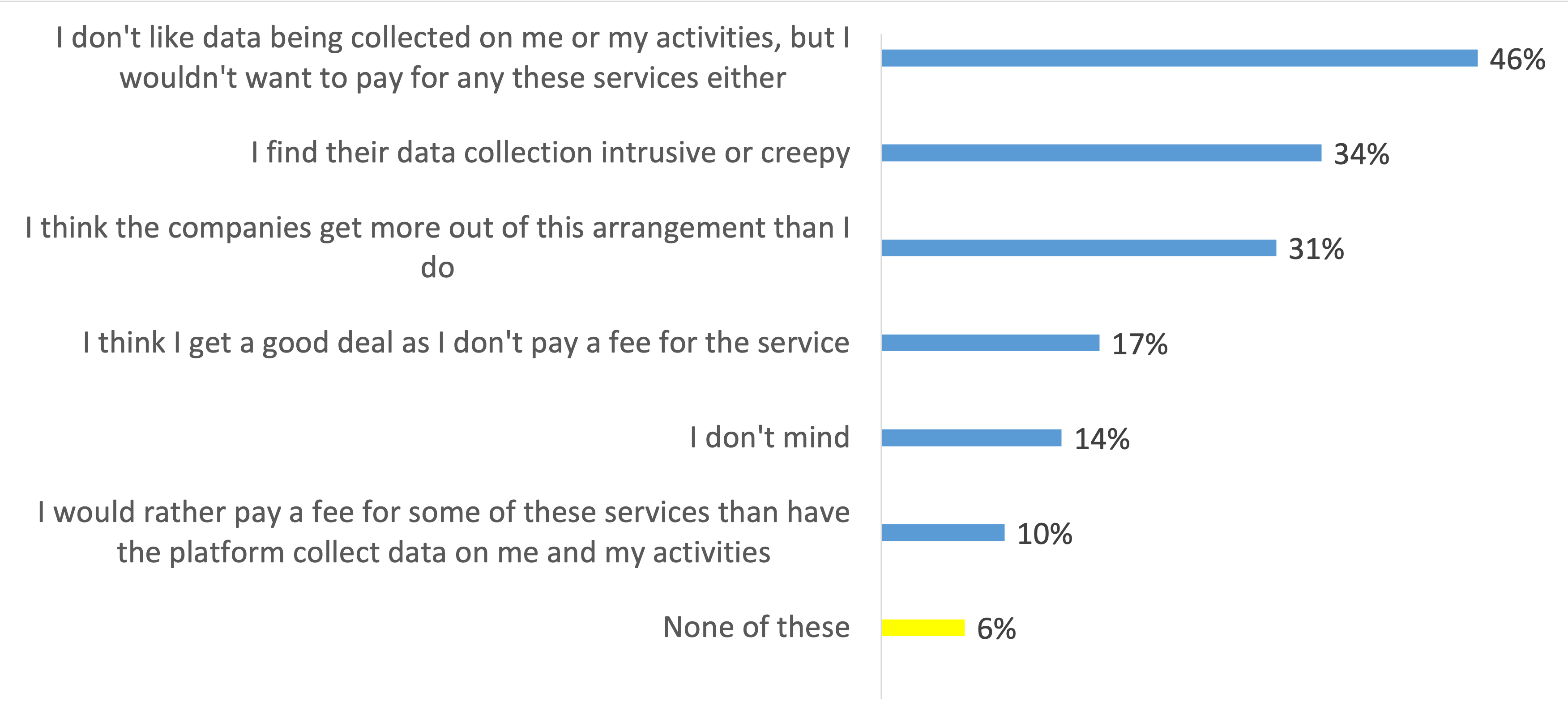We can't tackle platform competition issues without increasing digital literacy

Improving digital literacy is key to cleaning up competition rules and regulations. Image: Pexels.
Pinar Akman
Professor of Law, Director at Jean Monnet Centre of Excellence on Digital Governance, University of Leeds- Digital platforms are coming under increased scrutiny from competition authorities and regulators.
- At the same time many consumers have a poor understanding of how these platforms are funded and how they use data.
- We need to improve digital literacy among users to ensure these platform markets function effectively.
Eight out of 10 internet users wouldn’t pay as much as the cost of one McDonald’s meal - $5 - to use a search engine for a month, according to my latest research. Yet, the company operating the search engine that most of these consumers use recorded a revenue of over $180 billion last year, generated mostly from showing advertisements to these consumers. As digital platforms come under increasing scrutiny from competition authorities and lawmakers, what policies should be prioritized?
![Q: If [your preferred search engine/Facebook/Sina Weibo] started charging a [$5 equivalent] monthly fee to use the [platform] and all else remains the same, which of the following would be your most likely reaction?](https://assets.weforum.org/editor/LJx9gt3rzSW5D3GQcepTJKKC8OguMKPqO4qzUzUqwI8.png)
While consumers materially value the service they receive from free online platforms, such as search engines and social networks, their choice of platform may be driven primarily by the zero price tag rather than the value of the service received. My research also reveals a dearth of digital literacy. For instance, the majority of internet users are unaware that a search engine or a social network is free to use because advertisers pay the platforms to show consumers their advertisements.

When they are informed that some platforms collect data on users and their activities to facilitate personalised, targeted advertising for this purpose, consumers most commonly say they don’t like this.

These features on the consumer side of some of the most popular internet services can indicate a problem with how these markets – worth hundreds of billions of dollars – function.
Competition in a “market for lemons”?
In competitive, well-functioning markets, if consumers demand products or services that differ from existing ones, new businesses enter the market and/or existing providers tailor their offerings to satisfy that demand. Competitive markets are supposed to deliver better quality, more choice, and lower prices. Platform users generally express satisfaction with the existing quality, choice and price combination regarding most of the popular platform services they use. Yet, in a market where the quality of the product is uncertain and in the presence of information asymmetry between the buyers and the sellers, it is possible that only “lemons” will remain in the market.
Nobel laureate George Akerlof explained this using the used car market. Here, a buyer has much less information than the seller on whether the used car is good or bad (a “lemon”), driving down the price of all used cars. This makes it less worthwhile to sell a good used car, and so, the bad cars drive the good cars out of the market. Thus, how competitive some online platform markets are, depends on whether consumers’ current choices are impeded to a significant extent by deficiencies in digital literacy. At what point does the number of consumers who make insufficiently informed decisions create the risk of a market for lemons in some online services? Would significant numbers of users make different choices online if they better understood how some online platforms operate and make money? Answering these questions is essential in devising policy or regulatory solutions that can make these markets more competitive.
The importance of digital literacy
The intellectual energy and societal resources currently poured into solving the challenges of the digital economy are immense. Competition policy, pro-competitive regulations and data protection are high on government agendas. The options range from substantial fines to utility-style regulations prohibiting certain types of conduct by specific large platforms. Yet, digital literacy – the key to ensuring that consumers know and understand what they are “consuming” online when using platform services and make informed decisions – is practically absent from the debates on how to make digital markets more competitive.
Rather than treating platform markets as markets where products and services are offered to end users for final “consumption”, most policymakers approach these markets almost exclusively from the perspective of other businesses – mostly competitors, rather than customers, of incumbent firms – for whose competitive benefit the markets have to be reorganised. That approach risks missing the mark; if the buyers on a market are perpetually unaware of what they are buying, it doesn’t matter whether there are two or twenty sellers. The number of sellers – competitors – on such a market says little to nothing about how effective competition is on that market.
To be clear, enhancing digital literacy is not about making people tick more boxes every time they visit a website – that just rubs salt into the wound. Digital literacy is about equipping people from a young age with the skills they need to make informed choices when online. It’s about ensuring that everyone has the basic digital skills to understand simple facts about services that have become part of daily life: how a search engine ranks the results it displays to them or why a social media platform shows them the news that they see or why they pay nothing to use so many services online and what happens to their data. Improving digital literacy is about making digital skills training compulsory at schools. It’s about funding community centres, adult education programmes, running educational advertising campaigns on TV, making prominent informational notices in plain language compulsory on certain websites, and more.
Improving citizens’ digital literacy is certainly not as appealing a campaign slogan as a promise to “break up the tech giants”. However, it promises greater returns on investment to society by enabling citizens to make more informed online choices all around. It’s high time policymakers, regulators and governments join the dots and realise that quick fixes in competition policy, data protection or consumer protection without systematically fixing the widespread digital literacy deficiency amount to no fixes in the long run.
Don't miss any update on this topic
Create a free account and access your personalized content collection with our latest publications and analyses.
License and Republishing
World Economic Forum articles may be republished in accordance with the Creative Commons Attribution-NonCommercial-NoDerivatives 4.0 International Public License, and in accordance with our Terms of Use.
The views expressed in this article are those of the author alone and not the World Economic Forum.
Stay up to date:
The Digital Economy
Forum Stories newsletter
Bringing you weekly curated insights and analysis on the global issues that matter.







